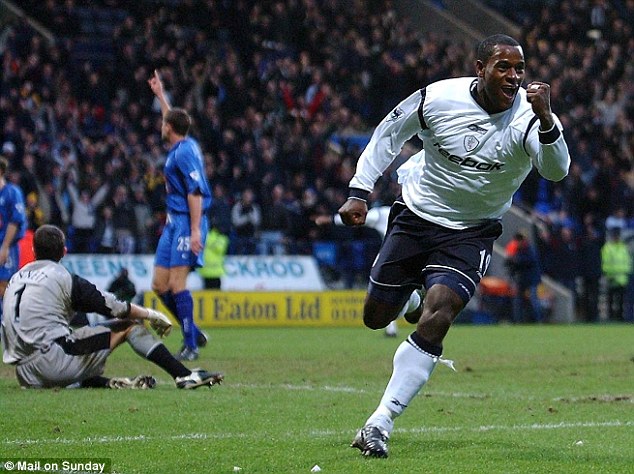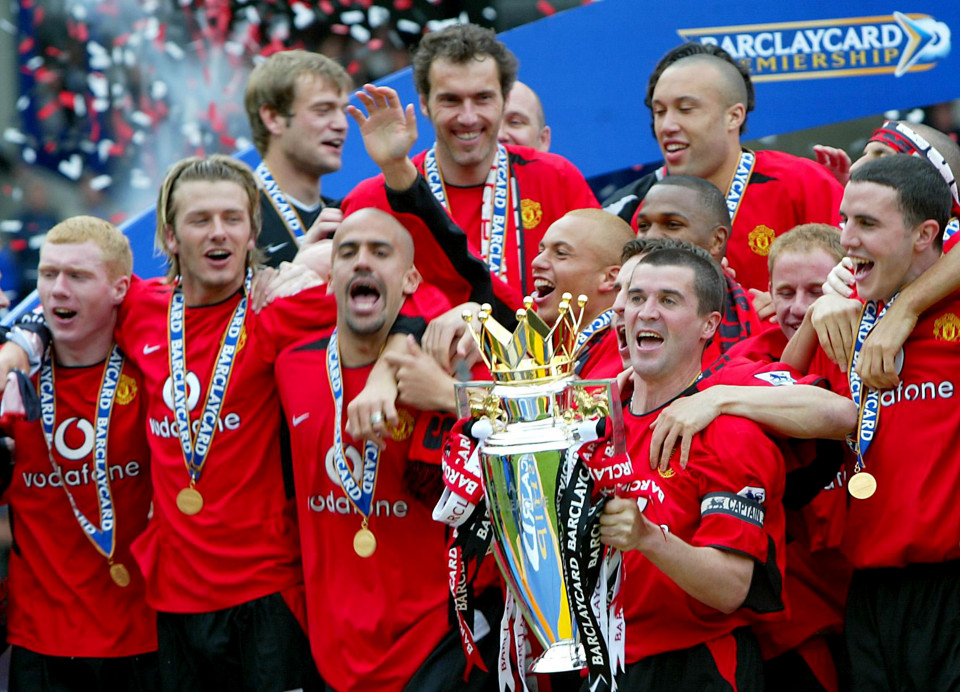The 2017/18 season celebrates 25 years of the Premier League. To mark the occasion we’ll be taking a look at some of the more off-kilter moments from each season. Back at the start of the 21st century, Sam Allardyce was just a robust manager with a keen eye for ageing European talent, despite his latter-day accusations of the Premier League ‘becoming foreign’. At Bolton Wanderers his approach to recruitment was akin to that of a 14 year old boy firing up his favourite football manager simulation game and searching the market for free transfers, before securing deals for Taribo West and Josep Guardiola at Wycombe Wanderers. Combining brains and brawn, Allardyce transformed Bolton into top-division mainstays.
Bolton Wanderers had enjoyed brief forays into the Premier League in the 1990s. They were promoted ahead of the 95/96 season, having beaten Reading in the play-off final, but despite having the wizardry of Sasa Curcic and the experience of Gudni Bergsson to call on, the Trotters finished the season dead last, picking up only eight wins all season. Two years later, under the stewardship of Derby County legend Colin Todd, they were back having won Division One at a canter, finishing 18 points ahead of 2nd placed Barnsley. Todd’s side fared slightly better in 97/98, taking the fight for survival down to the final day, but eventually succumbing to relegation on goal difference, much to the relief of Everton. Two play-off defeats followed in the next two seasons, during which time Todd was replaced with Sam Allardyce, and at the third time of asking Big Sam guided Bolton back to the Premier League with a 3-0 win over Preston North End at Wembley. Despite winning their first three games and securing a win at Old Trafford in October, Bolton’s inconsistent form left them in 15th come the new year, only four points ahead of the relegation zone. Then Allardyce hatched a plan. In the January window, the permanent signings of Youri Djorkaeff, Bruno N’Gotty and Stig Tofting were secured, as well as the loan signing of German striker Fredi Bobic. Suddenly an unfashionable team that had relied on the goals of a 34 year-old Dean Holdsworth and rookie striker Michael Ricketts had a swagger about them, and in the second half of the season Bobic and Djorkaeff’s goals helped to secure vital wins against Aston Villa, Ipswich and Charlton to ensure Bolton Wanderers’ Premier League status.

Ahead of the new season, and wishing to avoid another relegation scrap, Allardyce dipped back into the transfer market using the same policy that had added much needed firepower the previous January. With Bolton working on a tight budget, Allardyce knew he’d have to be wily, and moved to secure the loan signings of strikers Salva Ballesta and Pierre-Yves Andre from Valencia and FC Nantes respectively, as well as securing the short-term signature of experienced Real Madrid defender Ivan Campo. Chris Armstrong was also secured on a free transfer, but the most spectacular signing of the window was that of Jay Jay Okocha. The Nigerian playmaker had made his name in the Bundesliga at Eintracht Frankfurt in the mid-90s, before two fruitful years at Fenerbahce led to Paris St Germain spending £14m to secure his services. After a couple of seasons in the first team at the Parc des Princes, Okocha became understudy to the player he had mentored, and Ronaldinho’s presence in the PSG first team left the Nigerian surplus to requirement. With his contract expired, Allardyce pulled off the coup of the season. Bolton’s total transfer spend ahead of the 2002/03 season was exactly zero.
Keen for the abundance of flair in his newly sculpted side to flourish, Allardyce attempted to shy away from the brutal kick-and-rush football that others had accused him of the previous season. On the opening day at Fulham, Bolton attempted to play on the deck, and duly lost 4-1. Despite securing a second win at Old Trafford on the trot, with the exciting Kevin Nolan bagging the winner, Bolton found themselves one place and one point above the relegation zone heading into 2003, with only four wins picked up in the first half of the season. Getting his squad of multinational superstars to gel was proving more difficult than Allardyce had anticipated, however rather than delve into the transfer market once again in January in a bid to throw money at the problem, the Wrigleys addict was patient. A run of five games without a win in January left the Trotters sitting precariously above the relegation zone, but the inability of the three sides below them to string together a couple of wins meant that their poor form wasn’t punished and on the 1st February, everything clicked.

The visit of 16th placed Birmingham City had the air of a six-pointer about it, with the Blues sitting four points ahead of Bolton. A victory for the visitors would pull Birmingham City well away from the bottom four, but if Allardyce could pull off his side’s first win since Boxing Day, Birmingham would be dragged back into the dogfight. The Trotters took the lead in the 12th minute when Ricardo Gardner’s cross was poked into his own goal by Kenny Cunningham. A minute before half-time, Robbie Savage levelled the scores, but thirty five seconds in to the second half Bolton were ahead again. Youri Djorkaeff, again the driving force behind Bolton’s attack, played a defence splitting pass to Henrik Pedersen, and the bustling Dane bundled the ball home. Birmingham pegged the hosts back again through Clinton Morrison, but in the final ten minutes Bolton’s attacking quality told, and goals from Djorkaeff and Delroy Facey – another free signing in the summer, secured the three points for Allardyce’s team. Creditable draws away at West Brom and at home to Manchester United followed, and despite losing 2-0 at Anfield, Wanderers put together a three match winning streak in March, with Okocha and Campo providing crucial goals in victories against Sunderland, Tottenham and Manchester City. Regardless of this excellent run of form, a narrow defeat at Stamford Bridge left the Lancashire side just three points above West Ham going into the final five games of the season. The next visitors to the Reebok were – you guessed it – West Ham. The game took place two days after Hammers manager Glenn Roeder had been rushed to hospital after collapsing, but the visitors were unbeaten in five, and Bolton would have to be at their best to break down a resolute defence. Fortunately Okocha was in the mood, and after hitting a post early on, the Nigerian scored the winner in the 38th minute to put real daylight between the two sides. Despite a Trevor Brooking inspired rally from West Ham in the final four games, Bolton’s unbeaten run at the end of the season, including a late comeback to secure a point against Arsenal, meant Allardyce had staved off relegation for the second successive campaign.
The following season, Allardyce repeated the trick of signing ageing foreign players on the cheap, with Ibrahim Ba and Mario Jardel being added to the permanent signing of Ivan Campo. The excellent form of Djorkaeff and free signing Kevin Davies resulted in Bolton securing an 8th placed finish in the Premier League, their highest since 1960. In 2004/05, Fernando Hierro, Gary Speed and Les Ferdinand made the move to the North-West, and Bolton bettered their league position again, finishing sixth and qualifying for the UEFA Cup. By now the Premier League’s bigger clubs had taken notice of Allardyce’s work, and he was finally poached by Newcastle United ahead of the 2007/08 season, after Bolton had earned their fourth consecutive top eight finish. Allardyce’s departure hit the Trotters hard, and after floating around lower mid-table for five seasons under Sammy Lee, Gary Megson and Owen Coyle, they were finally relegated at the end of 2011/12. A slow descent to League One followed, and although they earned promotion last year, they’re looking odds on to fall to another relegation this season.
Allardyce’s style of football wasn’t given the thumbs up at St James’ Park, and he lasted less than six months in the job. Spells at Blackburn, West Ham, Sunderland, England and Crystal Palace have followed, with Big Sam possessing the knack of leaving teams in disarray to enhance his reputation. Most recently he can be found bemoaning the amount of foreigners in the Premier League, despite signing 37 when making his name as a Premier League manager, as well as stalking the touchline at Goodison Park.
West Ham were joined in relegation by West Brom and Sunderland, who managed to break the record for lowest points recorded in a Premier League season, winning only four games in the entire campaign. Manchester United regained the Premier League title from Arsenal in the 2002/03 season, with the 25 goals of master poacher Ruud van Nistelrooy key to Sir Alex Ferguson’s success, edging out 24 goal Thierry Henry. Foreign signings were now part and parcel of the Premier League, but not even the most cosmopolitan of Bolton Wanderers fan could have foreseen the march of Big Sam’s Army of Nations.
